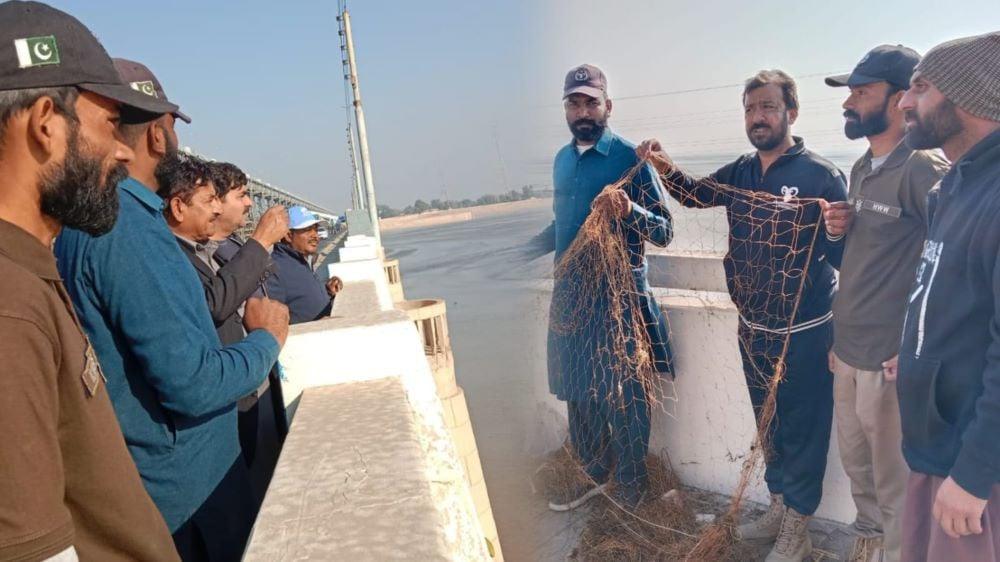To ensure the protection of blind Indus dolphins near the Taunsa Dam on the Indus River, Punjab Wildlife has intensified its monitoring efforts. Meanwhile, the five blind Indus dolphins rescued two days ago are also under close observation.
A total fishing ban has been imposed in the buffer zone of the Taunsa Dam. Additionally, Punjab Wildlife, Fisheries and WWF personnel removed the fishing nets installed to catch fish.
The team rescued five blind Indus dolphins, including two adults and three calves, which had become stranded due to low water levels downstream of Taunsa Dam. The dolphins were safely transferred to deeper waters of the river.
Deputy Director Wildlife Punjab at DG Khan Muhammad Hussain Gishkori said Express News:
“On Friday, we received information from a local NGO and wildlife personnel involved in conservation of aquatic life that several blind Indus dolphins were stranded in the area downstream of the Taunsa Dam on the river Indus. We traveled 200 kilometers to reach the site, where wildlife, fisheries staff and WWF volunteers were already present.
Muhammad Hussain Gishkori said the water level in some areas downstream of the Tunssa Dam was extremely low. He said they had surveyed about two kilometers of the river, where low water levels had left five dolphins – two adults and three calves – stranded and unable to move.
He added that the dolphins had been safely transferred to deeper waters and all five were now safe. He also mentioned seeing six dolphins in the area, suggesting their number could exceed ten.
Punjab Wildlife and Fisheries personnel also removed fishing nets placed in various parts of the Taunsa Dam. Authorities said fishing is prohibited in this buffer zone under the wildlife law, but poachers sometimes set nets at night.
“Thank God the dolphins were not caught in the nets,” Gishkori said. “To prevent future risks, all nets have been removed and monitoring has been further intensified.” He reiterated that Taunsa Dam, both upstream and downstream, is a protected buffer zone where any hunting of aquatic life is strictly prohibited.
The discovery that the dolphins were stranded due to low water levels came when Khadim Hussain, a worker at the Sindhu Bachao Tarala Foundation, and his team studied blind Indus dolphins. They spotted the dolphins stranded in a section of the river where the waters were extremely low. Khadim Hussain said he immediately informed WWF and Punjab Wildlife authorities, whose quick action helped save the dolphins.




